- - What Is Dental Implant Aftercare?
- - Immediate Dental Implant Aftercare (24–48 hours)
- - Dental Implant Aftercare During Healing (First 2 Weeks)
- - Long-Term Dental Implant Aftercare (3 to 6 Months)
- - Dental Implant Aftercare for Fast Healing
- - Dental Implant Removal Aftercare
- - Dental Implant Aftercare for Bone Graft
- - Dental Implant Crown Aftercare
- - When to Contact a Dentist During Dental Implant Aftercare?
- - Dental Implant Aftercare Takeaways
- - Get Trusted Care With Dental Implants at Turkey Luxury Clinics
- - FAQs About Dental Implant Aftercare
Dental implants can significantly improve your oral health and overall quality of life. However, the recovery period can be long, and the process requires careful attention to ensure optimal healing and long-term success.
The dental implant procedure is time-consuming. While the surgical insertion of the implant is usually completed in a single session, healing and osseointegration can take 3 to 6 months. This makes dental implant aftercare a critical period to ensure the implant stabilizes and becomes ready for crown placement.
At Turkey Luxury Clinics, we guide you through every step of the dental implant aftercare process—what to expect, how to care for your implant in the short and long term, and when to contact your dentist for support.
What Is Dental Implant Aftercare?
Dental implant aftercare is a comprehensive care of the implant area during the recovery that starts immediately after the procedure of implant placement and ends when the crown is placed.
Dental implant aftercare involves managing immediate surgical discomfort with cold compresses and pain relievers, following a soft-food diet during initial healing, and maintaining good oral hygiene by gently cleaning around the implant site with a soft-bristle brush and prescribed mouthwash. Long-term aftercare includes consistent, gentle brushing and flossing, regular dental check-ups, and avoiding hard or sticky foods that could damage the implant.
Immediate Dental Implant Aftercare (24–48 hours)
Dental implant surgery involves anesthesia; you should not feel any pain during the procedure. Following the Dental Implant Procedure, you'll probably feel some pain or discomfort, but it should not last more than a few days.
Immediate dental implant aftercare mainly focuses on managing post-surgery symptoms such as bleeding, swelling, and pain through rest, ice packs, and a soft diet during the first few days. In this stage, dental implant aftercare instructions and tips include
Control Bleeding Gently
Mild bleeding is normal after dental implant surgery. To control it, bite gently on gauze, avoid hot drinks, and refrain from vigorous rinsing, spitting forcefully, or using straws, as these may dislodge the blood clot. Bleeding usually lasts only a few hours. Patients on blood thinners should consult their doctor in advance about medication adjustments.
Manage Pain and Swelling with Medications and Ice Packs
Pain and swelling after dental implant typically peak within 24–72 hours and subside within 3–7 days. Use prescribed pain relievers such as ibuprofen or over-the-counter options like paracetamol. Apply a cold compress or ice pack to the outside of your face—15 minutes on, 15 minutes off—for the first 24 hours to reduce swelling.
Eat Soft and Cool Foods
Diet plays an important role in healing and osseointegration during dental implant aftercare. For the first 24–48 hours, avoid solid or hard foods and chewing on the implant site. Stick to a soft, cool diet such as yogurt, applesauce, mashed potatoes, or scrambled eggs. Avoid hot foods and drinks that may increase bleeding or swelling, and stay away from hard, crunchy, or spicy foods for several days. After 24 hours, you may advance your diet, but take care to avoid chewing directly on the implant site. Avoid eating hard, crunchy, or spicy food.
Rest and Avoid Strenuous Activity
Rest as much as possible, keeping your head slightly elevated while sleeping to reduce swelling. Avoid strenuous activities, exercise, or any impact to the implant site during the first days of recovery.
Maintain Oral Hygiene Carefully
Good oral care is essential for dental implant aftercare success. Do not brush or rinse your mouth in the first 24 hours. After that, gently rinse with a warm saltwater solution, especially after meals, to lower the risk of infection and prevent food from accumulating at the surgical site.
Dental Implant Aftercare During Healing (First 2 Weeks)
After the first 48 hours, dental implant aftercare focuses on protecting the surgical site and supporting the healing process in the following days.
During this intermediate dental implant aftercare staying hydrated is essential, so make sure to drink plenty of water while avoiding alcohol, caffeine, and carbonated drinks.
It is crucial to avoid touching or disturbing the implant area with your fingers or tongue, also it is essential to avoid eating on site of implant during the first week until all as this can interfere with clot formation and slow osseointegration.
One of the most critical tips of post implant aftercare is to stop smoking and alcohol during this the first week of dental implant aftercare to allow for wound healing, since both can delay recovery and increase the risk of implant failure.
Continue taking prescribed antibiotics or medications exactly as directed by your dentist to keep the healing on track.
Keep minimum physical activity and avoid heavy lifting, exercise, or any impact to the implant site until your dentist confirms you are ready to resume normal routines.
Long-Term Dental Implant Aftercare (3 to 6 Months)
Long-term dental implant aftercare focuses on implant fusion to natural bone, and proper gum tissue healing; this is essential for keeping your implants healthy and ensuring they last for many years. Proper care protects the implant, gums, and jawbone, while reducing the risk of complications or implant failure.
Long term dental implant aftercare instructions include:
- Keep oral hygiene for dental implant cleaning: Brush gently twice daily with a soft-bristled toothbrush; floss carefully around the implant once a day. Use dentist-recommended mouthwash if advised.
- Checkups implant regularly: Attend scheduled dental visits to monitor implant, gum, and bone health. Professional cleanings at least twice a year help maintain long-term success.
- Follow strict diet considerations: Avoid very hard, sticky, or crunchy foods that may damage the implant. Focus on a balanced diet rich in vitamins and minerals to support bone and gum health.
- Avoid smoking and alcohol drinking during dental implant aftercare: Do not smoke and limit alcohol intake to ensure proper healing and reduce the risk of implant complications.
Dental Implant Aftercare for Fast Healing
For quicker and proper healing after a dental implant, stick to soft and gentle oral hygiene. Do not brush directly on the implant site, and avoid putting stress on this delicate area.
Continue eating soft and cool foods that will not irritate the surgical area. Avoid hot foods and drinks, refrain from using straws, and do not smoke, as these can interfere with healing.
Do not crush food on the site of the incision or implant placement, since it is still a delicate area. Heavy pressure during dental implant aftercare can delay healing and even cause implant failure, so avoid stressing your implant area.
Remember to avoid strenuous activities, as your body is still in recovery mode, and commit to your pain management routine. Stop smoking during the dental implant aftercare period because it interferes with normal healing, weakens immunity, and increases the risk of implant failure.
Dental Implant Removal Aftercare
Dental implant removal aftercare differs from standard implant aftercare in that it focuses on the initial wound healing and reducing discomfort after the implant explantation (immediate aftercare) rather than the long-term osseointegration required during implant placement.
Proper aftercare during this stage allows the gums and bone to recover smoothly and prepares the site for possible future dental treatment. Dental aftercare after implant removal includes:
- Extended period of soft food: Consume only soft foods for 1–2 weeks to avoid pressure on the surgical site and support proper tissue recovery.
- Gentle oral hygiene is important: Rinse gently with a dentist-prescribed mouthwash, avoiding brushing directly on the wound for the first few days to prevent irritation.
- Wound healing is optimum when protecting the blood clot: For the first 24–48 hours, avoid forceful spitting, using straws, or any strenuous activity to keep the clot intact.
- Pain after removal of the implant is stronger and longer but still manageable: Do not neglect controlling swelling; use prescribed medications and apply ice packs intermittently to manage discomfort and swelling.
- Attend follow-up visits: Stick to all scheduled appointments to monitor healing, catch potential issues early, and ensure readiness for future dental treatments.
Dental Implant Aftercare for Bone Graft
A bone graft is a surgical transplantation of bone pieces to the implant area before the insertion of the implant. It is essential for patients who do not have enough bone density in this area. Aftercare post bone grafting for dental implant mainly focuses on long-term osseointegration for successful bone grafting. It requires maintaining a healthy diet, avoiding smoking and alcohol, and keeping good oral hygiene.
Do not apply pressure on the graft site, and most importantly, be patient and committed to these instructions for 3 to 6 months—the time needed for the grafted bone to fuse with the natural bone.
Dental Implant Crown Aftercare
After crown placement, dental implant aftercare focuses mainly on oral hygiene and protecting the crown from damage. Avoid chewing hard or sticky foods that may crack, loosen, or put unnecessary pressure on the crown. Commit to regular dental check-ups to monitor both the crown and implant health. Maintaining a healthy lifestyle and proper daily cleaning are key to ensuring the crown lasts for many years.
When to Contact a Dentist During Dental Implant Aftercare?
You should contact your dentist immediately if you experience severe or persistent pain, excessive or worsening swelling or bleeding, signs of infection (like fever, pus, or a bad taste), or if the implant feels loose or unstable
Although dental implant aftercare usually proceeds smoothly, certain situations indicate dental implant complications and require you to contact your dentist promptly:
- Severe or Prolonged Bleeding: Bleeding typically stops within 24–48 hours. If it persists despite gentle pressure and normal care, contact your dentist immediately.
- Persistent or Increasing Pain: Pain should gradually decrease after the first couple of days. If it intensifies or continues beyond 2–3 days, it may indicate dental implant infection or other complications that need evaluation.
- Sudden or Increasing Swelling: Rapid swelling at the implant site or on your face could signal uncontrolled inflammation or infection that requires urgent attention.
- Difficulty Chewing or Loosening of the Implant: If the implant feels loose, unstable, or shifts when you bite or touch it, contact your dentist right away, as this may indicate a problem with osseointegration or implant stability.
Dental Implant Aftercare Takeaways
- Dental implants improve oral health and overall quality of life.
- Recovery can be long; proper aftercare is essential.
- Surgery is painless with anesthesia
- Normal post-op symptoms: bleeding, swelling, bruising, and jaw pain.
- Rest and avoid strenuous activities after surgery.
- Use soft foods during initial healing.
- Brush gently with a soft-bristle toothbrush.
- Rinse with the prescribed mouthwash or saltwater solution.
- Persistent pain beyond 2 weeks requires a dental evaluation
- Regular dental visits ensure implant success.
- Avoid smoking, alcohol, and hard or sticky foods.
- Stay hydrated and maintain a nutrient-rich diet (calcium is important).
- Ice packs or cold compresses help manage swelling.
- Every patient’s recovery is unique; follow dentist's instructions closely.
Get Trusted Care With Dental Implants at Turkey Luxury Clinics
Ensure the success and longevity of your dental implant with professional guidance every step of the way. At Turkey Luxury Clinics, our experienced dental team provides personalized consultations, high-quality implant placement, and detailed aftercare support to make your recovery smooth and effective.
Book your appointment today and take the first step toward a healthy, confident smile that lasts for years.

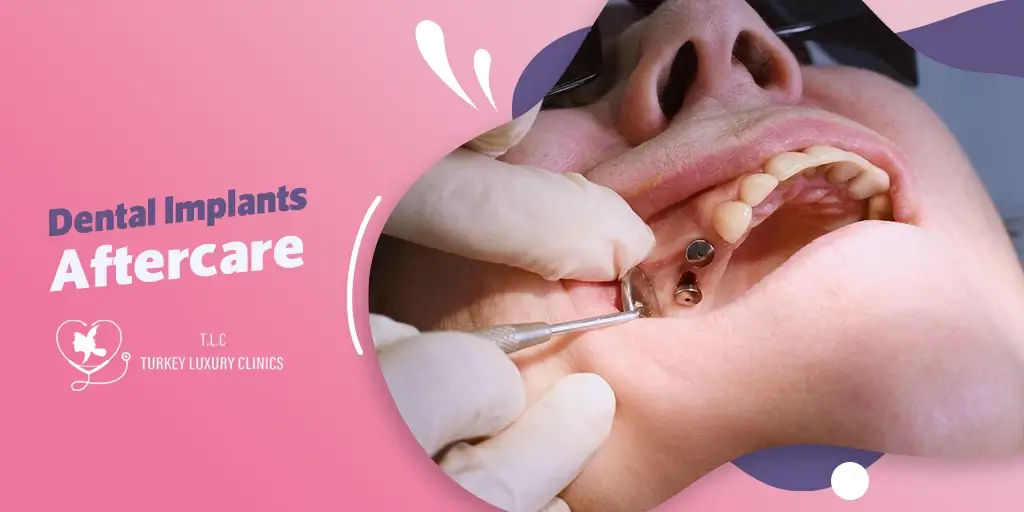




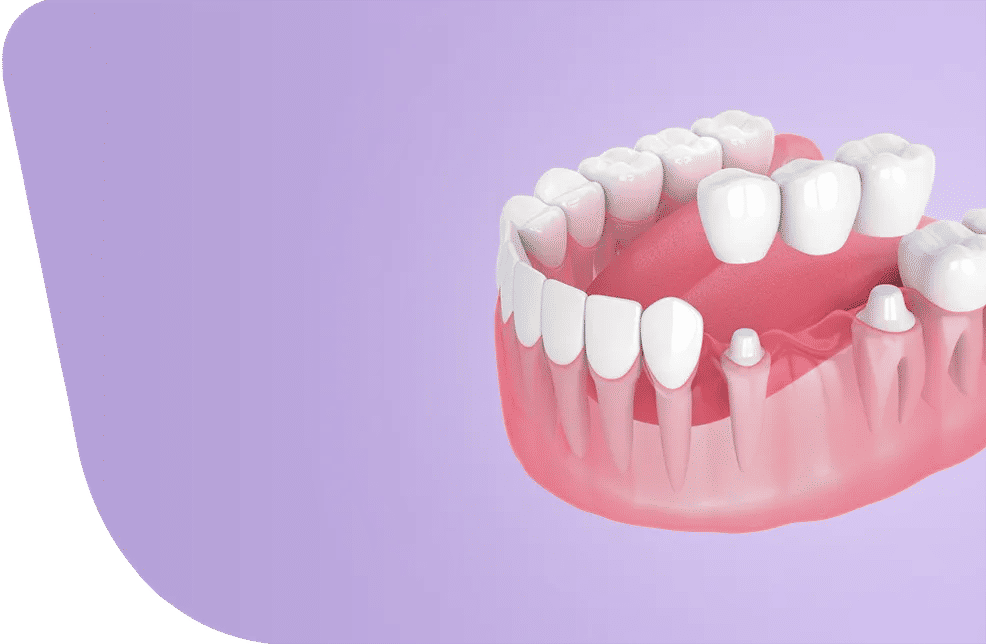
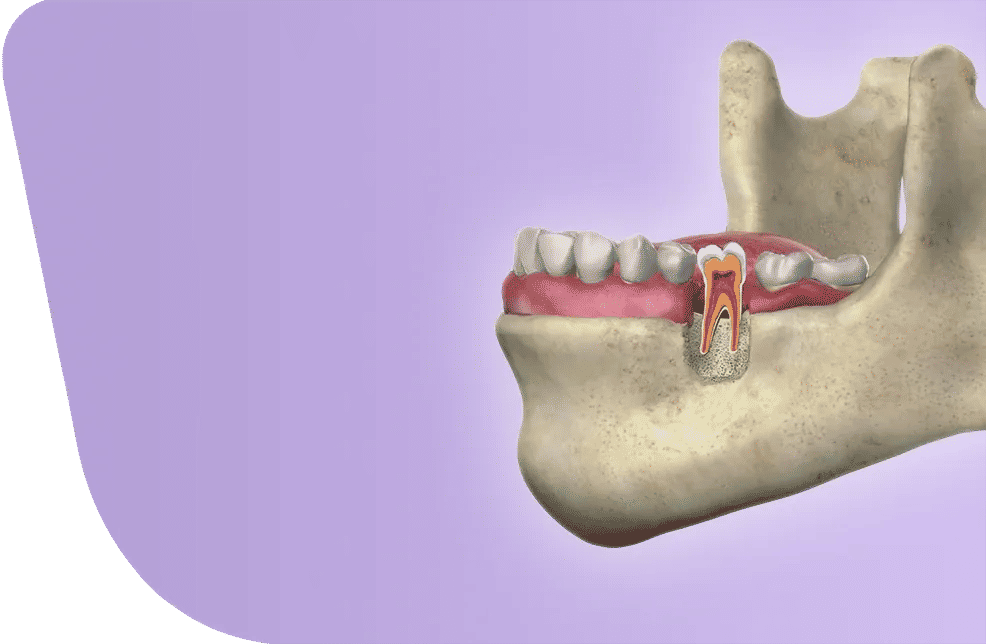
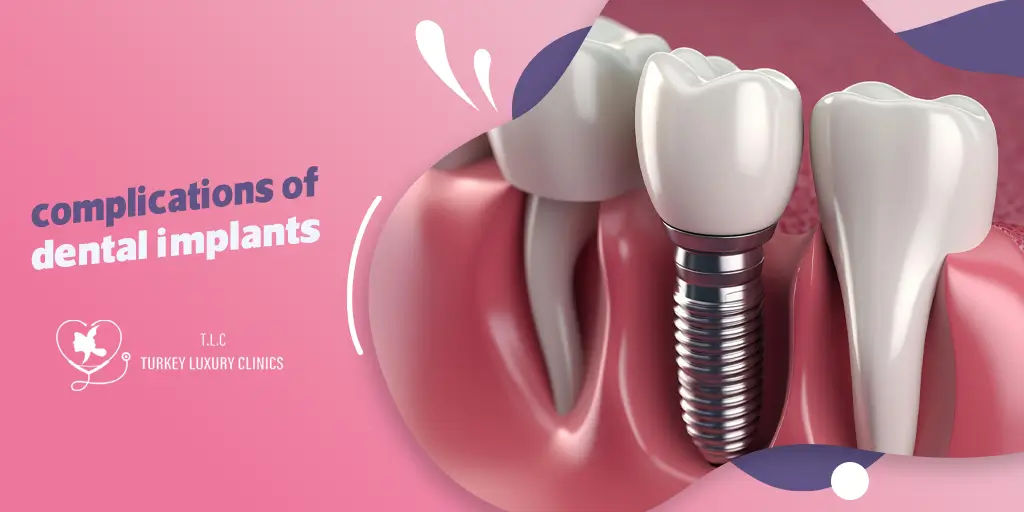

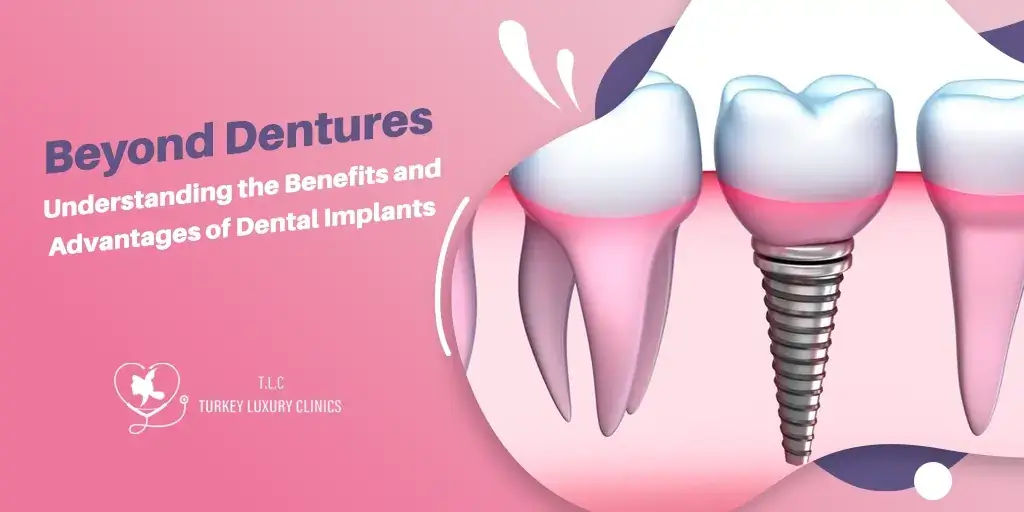



.webp)
.webp)
.webp)
.webp)

